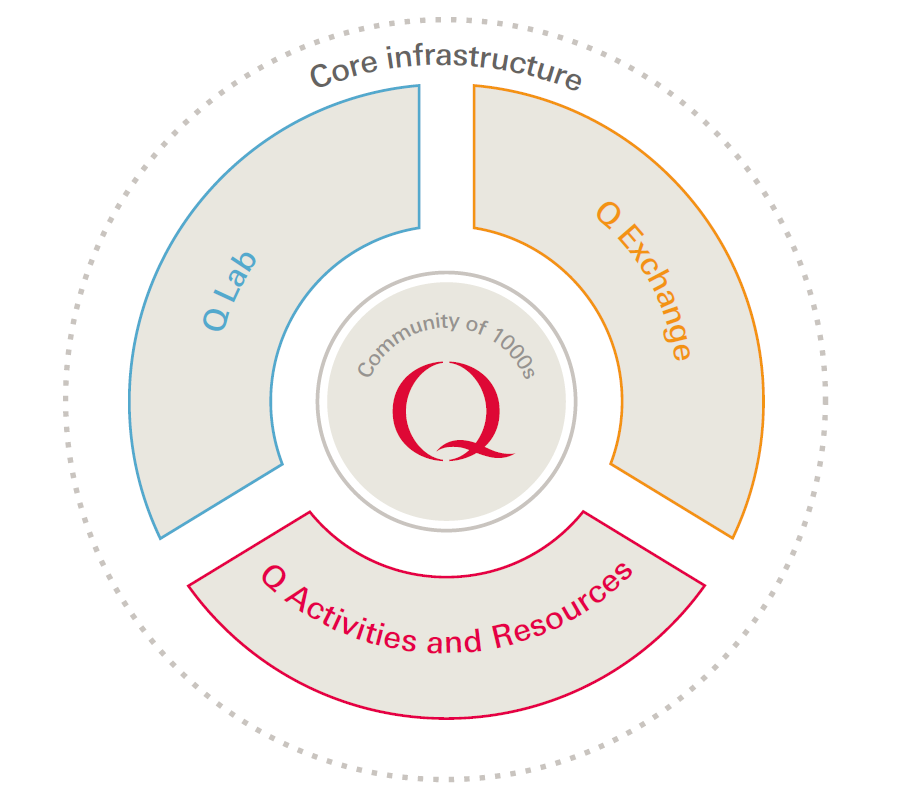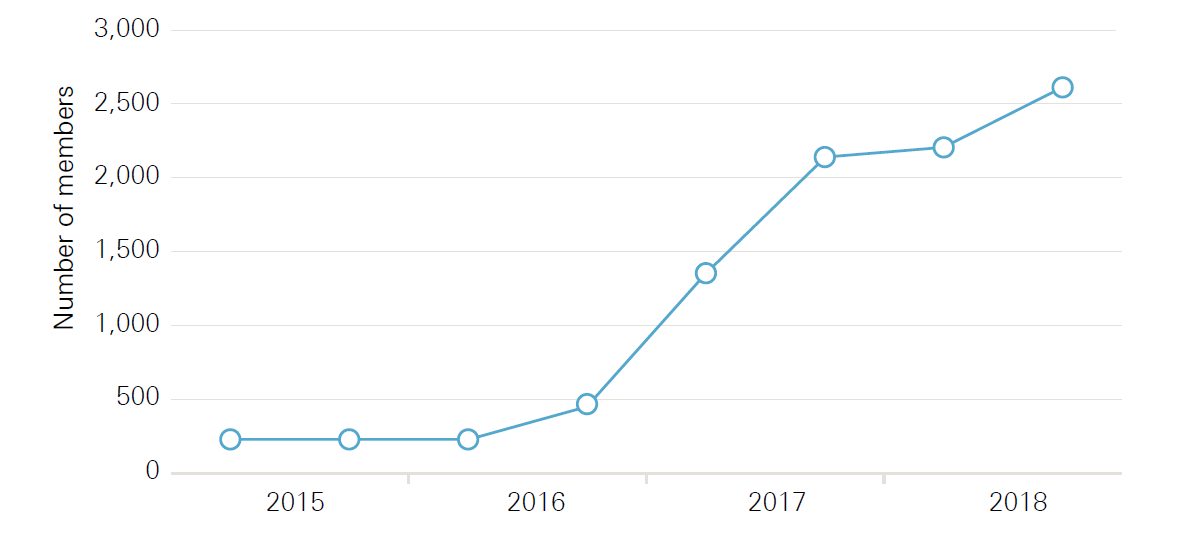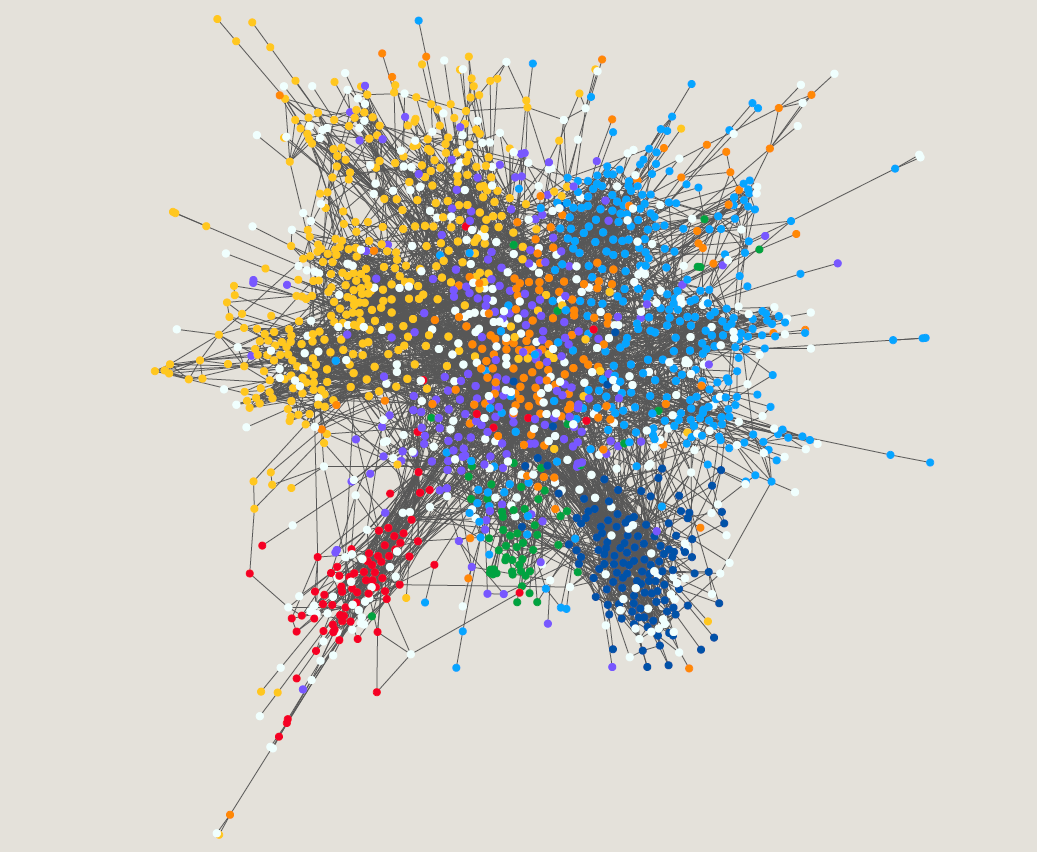Q started in 2015 with a big vision for a more joined-up approach to improving quality across UK health and care.
People gathered around the idea that if we could get better at sharing and learning, the improvement methods that deliver impressive results in many individual teams could have wider impact.
Three years in, Q has developed from a concept to a multi-strand initiative with over 2,600 members, a busy events programme and more than 40 member-initiated groups collaborating on key issues. A new approach to making progress on complex challenges in healthcare has been successfully piloted by Q Lab, and the first cohort of award holders will be chosen this week for Q’s innovative participatory funding scheme, Q Exchange.
NHS Improvement and Q’s 18 other country and regional partner organisations are helping to weave Q into existing structures so it increasingly becomes part of how we learn and share as a system.

The independent evaluations of Q and Q lab reported in July, and this month the Health Foundation is publishing a learning report summarising key insights, as part of our commitment to openly share how Q is developing. The report will be officially launched next week at the annual community event – watch this space.
So, how’s it going and what are we learning?
Who’s doing the improving? How can we support them better?
As Q grows, it’s starting to give an interesting picture of who’s doing the work of leading change efforts – people on which so many of the strategic ambitions for the health sector rely. Read the full report for highlights of the demographic and geographical make-up of the community, and take a look at Q’s publicly searchable directory to see who’s in your organisation or area.

You might be inspired to join them if you’re not in Q already. Whether you’re working at the front-line of public services or at a regional or national level, if you have some established expertise in enabling change and think you could achieve more through learning and working collaboratively, the community needs you.
Towards better-connected health and care improvement
Joining Q gives members free access to events and resources and these are designed to encourage productive connections between people– in line with evidence that flexible networks support innovation and spread. The evaluation shows members are making useful links they would’ve struggled to make otherwise. At the same time, members are sharing practical lessons that can help spread innovation and learning, reducing time wasted by organisations when problem-solving.
Q and Q Lab are creating fertile ground for fresh insights and energy at the interface between sectors and services in a way that involves service users as well as clinicians, managers, policy makers, analysts and researchers as equal members. RAND’s latest social network analysis illustrates the scale at which Q can help build a more joined up approach to improvement.

Fresh traction on complex challenges
The Q Lab provides a creative platform for organisations and individuals from Q and beyond to work together on a complex challenge that many are grappling with. The first Q lab project focused on making peer support services available to all who need and want it. A series of essays share the key insights and achievements so far.
Building on the potential of the first project, a second project has just been launched in partnership with Mind, exploring how we can improve care for people with mental health problems and long-term back and neck pain. Find out more about why this is such an important issue and how you can get involved.
Push for greater impact through collaboration
While there is strong engagement in Q, there is also healthy challenge to see what more could be done to ensure the potential of Q follows through to deliver tangible benefits for service users and organisations. Q Lab and Q Exchange are demonstrating the potential of collaborative approaches to generate and scale improvement, and we will continue to develop initiatives with momentum and impact.
The full potential of Q will only become clear over the long term, but three years in, there are promising signs that the community is starting to help 1000s of people leading improvement advance their work. Get involved!